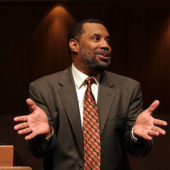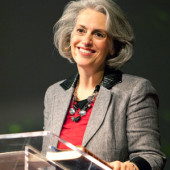About 1.8 billion people, 24% of the world’s population, identify as Muslim. Followers of Christ have the marvelous privilege and opportunity to introduce them to the hope of Jesus, however there are challenges to presenting the Gospel across cultural and religious lines.
Afshin Ziafat came to Christ from a Muslim background. He says when you have the opportunity to talk with followers of Islam, it’s best to start by building a connection with them.
“If you can, work from a relationship. Whether it’s a neighbor or coworker, the best way is a relational model. I believe in the power of prayer; you start with prayer for them. Then invite them into your life and bring them into your home.”
“A lot of evangelism and sharing your faith is asking questions. You don’t come right away with the answer about Jesus, but just start with questions: what’s important to you in life? What do you believe about God? Who do you think Jesus is? One very basic question: how can I pray for you? Then you to get to know their needs, and how you might get to meet those needs.”
Many Muslims come to America from other nations and are in need of a friend to help them learn the ropes in a new culture.
“If they’ve recently come to the country, they’re brand new, and they need to know how to get assimilated–how to set up a bank account, how to get the kids signed up for school– just walk alongside these people. You’d be amazed how many times the Lord will open up doors for you share the Gospel.”
For a Muslim to follow Christ can carry a high cost; it often means being rejected by their culture, even their own family. When Afshin committed to Christ, he lost a relationship with his father for several years. Today, he encourages Muslims that trusting Jesus is worth the sacrifice.
“With your family or friends, it may have to get bad first before it gets good; I found that to be the case (my relationship with my father actually was restored). God is faithful. If you have to lose your father (for Christ), He is a father to you and he will never leave you, never forsake you. You may not know how your making that stand may actually impact your father, your family, down the road.”
Afshin notes that there’s a very different understanding of sin and salvation in Christianity than Islam.
“Muslims do believe there is sin, but the idea of inherent sin, that we are born with unregenerate hearts, and there’s nothing we can do to save ourselves, that is foreign in Islam. In Islam, sure you have sin in your life, but it’ll be weighed upon a scale vs. your good works and if you’re more good than bad, you’re going to go to heaven.”
“The problem is much deeper than sinning every once in a while. You are inherently fallen short of the glory of God, an enemy of God, and being just and holy, God must punish sin– therein lies the problem. No man can save himself and that’s why Jesus Christ is so important.”
“Ironically, even Muslims believe Jesus was sinless. I try to ask them, ‘why was He sinless?’ He was sinless because he was the spotless Lamb of God, which takes them back to the story of Abraham offering up his son; God was providing a substitute sacrifice (Genesis 22). Jesus is that substitute sacrifice, who lived a sinless life: if you put your faith in Him, then you will be saved.”
Start today by praying for your friends who are Muslim, and begin to seek opportunities to show them the love and grace of Jesus.
Afshin Ziafat is the lead pastor at Providence Church in Frisco, TX. Born in Houston, Afshin moved with his family to their native country of Iran when he was two years old. In the midst of the Iranian Islamic Revolution, Afshin’s family moved back to Houston at age six. In the second grade, he was given a Bible by a tutor who was teaching him the English language. He read that Bible 10 years later as a senior in high school and came to faith in Christ.
Introducing Muslim Friends to Jesus


















